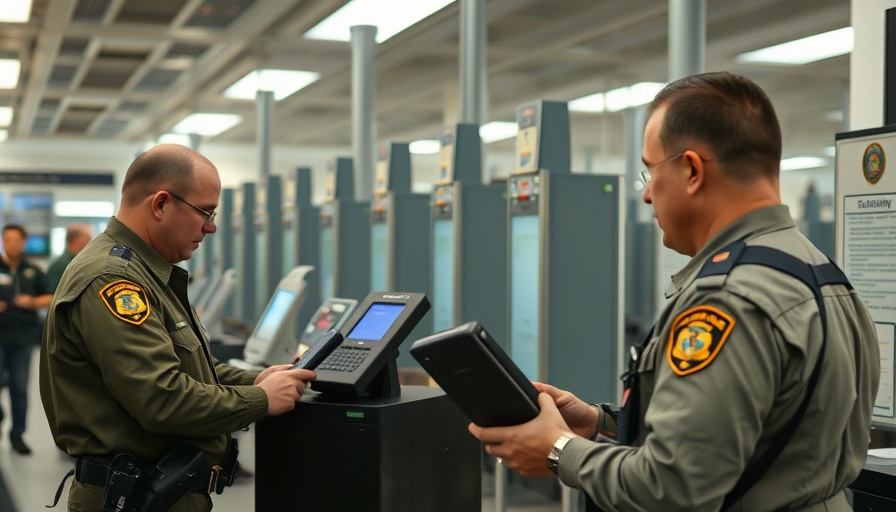
Record Surge in Device Searches at U.S. Borders
In a stark reflection of rising security protocols, U.S. Customs and Border Protection (CBP) has reported an unprecedented spike in device searches at the nation’s borders. Recent statistics reveal that during the second quarter of 2025, agents searched a staggering 14,899 electronic devices belonging to international travelers—a 17% increase from the previous record set in early 2022. This growing trend raises important concerns regarding privacy and civil liberties at a time when the boundaries between personal space and security measures continue to blur.
Why Are Device Searches on the Rise?
The surge in device searches is influenced by an increasing focus on national security. The use of electronic devices in everyday life means they often contain sensitive information—from photos and contacts to financial data. With the global landscape changing, authorities feel the pressing need to scrutinize this data at borders. The primary method employed during these searches is deemed 'basic,' meaning border agents typically request access to travelers’ devices, demanding passwords without using advanced technological tools.
The Dilemma of Consent and Consequence
For U.S. citizens, denial of a device search does not prevent entry into the country, but they risk having their device seized indefinitely if they refuse. Conversely, international travelers are faced with a dilemma: accept the search, risking possible privacy violations, or refuse and be denied entry. This reality raises questions about the constitutional legitimacy of such searches. The debate surrounds the Fourth Amendment's protection against unreasonable searches and seizures, a subject that remains fiercely debated in courts across the nation.
Judicial Perspectives and Ongoing Debate
The boundaries of what constitutes a reasonable search at the border are vigorously contested. While some rulings favor the government’s stance on security, others argue against such measures, citing the need for stronger protections of personal privacy. The absence of a definitive ruling from the Supreme Court means that the issue may continue to generate diverse legal opinions and public outcry.
Implications for Privacy in the Digital Age
The rise in device searches speaks to a larger issue of privacy in the digital era. The implications of these searches extend beyond immediate legal debates; they also provoke a necessary conversation about personal data security. As technology evolves, so too do the means by which authorities may seek information, potentially infringing upon individual rights.
Advice for Travelers: Staying Informed
Travelers heading to the U.S. should be acutely aware of the potential for device searches at border crossings. Understanding your rights and options is crucial. Before traveling, consider how to protect sensitive information, whether by avoiding storing it on devices you plan to take or by using encryption tools that can safeguard your data. Knowledge is power, especially when navigating the complexities of modern travel security.
A Growing Need for Legislative Action
This situation underscores the pressing need for clear legislative frameworks that address digital privacy rights in the context of border searches. While national security remains a priority, it should not come at an excessive cost to personal freedoms. Engaging in conversations and advocacy around these issues is vital for ensuring that our rights are preserved in the face of evolving security measures.
Take Action: Engaging with the Issue
As we navigate this pivotal moment in tech and security, it is imperative to participate in discussions surrounding privacy and border security. Keeping informed about current events related to tech news and holding our leaders accountable for digital rights can influence the future landscape of traveler privacy. Engaging in advocacy or participating in community forums can bring about meaningful change.
 Add Row
Add Row  Add
Add 



Write A Comment